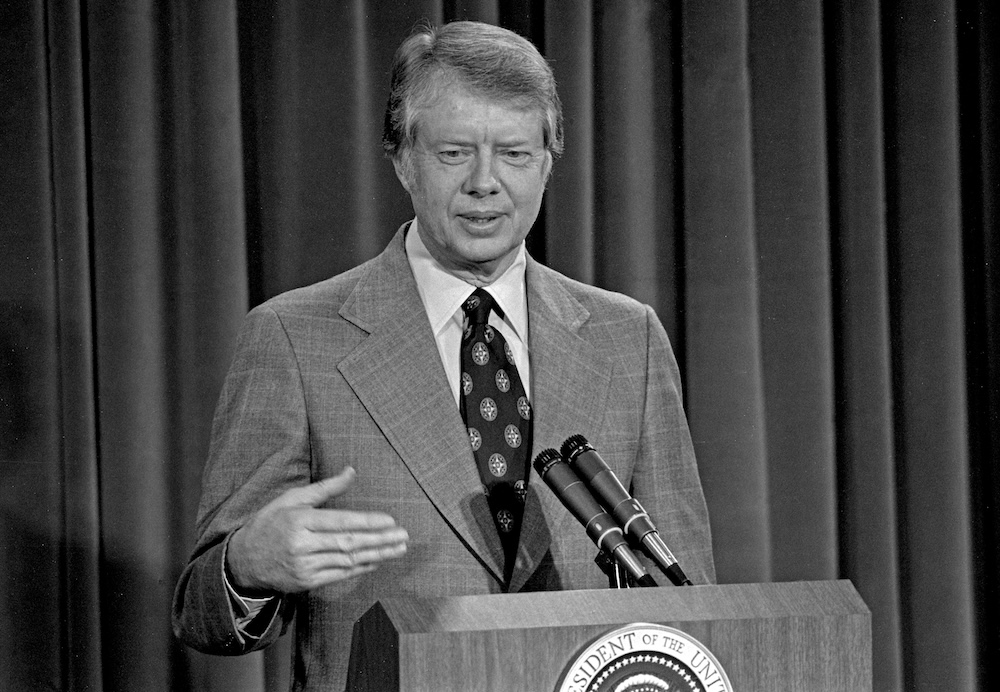Politics
WATCH: CNN Guest Pours Cold Water On Jimmy Carter’s Legacy, Leaves Panel Speechless

Jimmy Carter, the 39th president of the United States, passed away on Sunday, surrounded by family in his hometown of Plains, Georgia. As tributes pour in for the former president, Carter’s legacy has become a point of contention, with some praising his humanitarian efforts while others take a critical view of his presidency and post-presidency actions.
During a CNN panel discussion, Republican commentator Scott Jennings did not mince words when evaluating Carter’s legacy, describing him as both a “terrible president” and an “even worse ex-president.” Jennings’ comments left the panel visibly stunned, as he laid out his case against the late president’s tenure in office and subsequent involvement in U.S. foreign policy.
“[Carter] was a terrible president. That’s why he lost in a landslide after his one term,” Jennings declared. “And if it’s possible, I think he was even a worse ex-president because of his meddling in U.S. foreign policy, his saddling up to dictators around the world, his vehement anti-Israel views, and more than dabbling in anti-Semitism over the years.”
Jennings also highlighted how Carter’s actions as an ex-president often created challenges for his Democratic successors. “Obama didn’t even have him speak at his ‘08 convention,” Jennings pointed out, referencing how Carter’s reputation complicated Democratic Party messaging. “He put Bill Clinton in a terrible foreign policy box on a North Korea nuclear issue.”
The remarks took an even sharper turn when Jennings accused Carter of undermining U.S. interests abroad. “In the run-up to the Persian Gulf War, he wrote letters to all of our allies and to Arab states asking them to abandon their cooperation and coalition with the United States of America,” Jennings said. “If it’s not treasonous, it’s borderline treasonous.”
WATCH:
Carter’s legacy as the 39th President of the United States from 1977 to 1981 has long been a divisive topic in American politics. During his presidency, Carter prioritized human rights in U.S. foreign policy, breaking from Cold War realpolitik and focusing on pressing governments with poor records, particularly in Latin America and South Africa. However, his administration struggled domestically with economic challenges, including high inflation, unemployment, and an energy crisis, which, along with the Iranian hostage crisis, significantly impacted his reelection bid.

Washington, DC US – Feb 8, 1977: United States President Jimmy Carter conducts the first nationally televised press conference of his administration.
While often celebrated for his humanitarian work, Carter has not escaped harsh criticism, particularly from conservatives who view his presidency and post-presidential actions as deeply flawed. Critics like Jennings argue that Carter’s tenure in the White House was marked by failures so significant that they led to his landslide defeat in 1980. What was perceived as weak leadership on the world stage contributed to public discontent and a shift toward Ronald Reagan’s decisive messaging.
Despite these accomplishments, Carter’s post-presidential diplomacy, such as his engagement with North Korea and criticism of U.S. policies on Israel, sometimes sparked controversy and strained relationships with subsequent administrations. His legacy is viewed as a mix of notable achievements in peace-building and polarizing actions in both his presidency and his later years.
(FREE GUIDE: Trump’s Secret New “IRS Loophole” Has Democrats Panicking)

